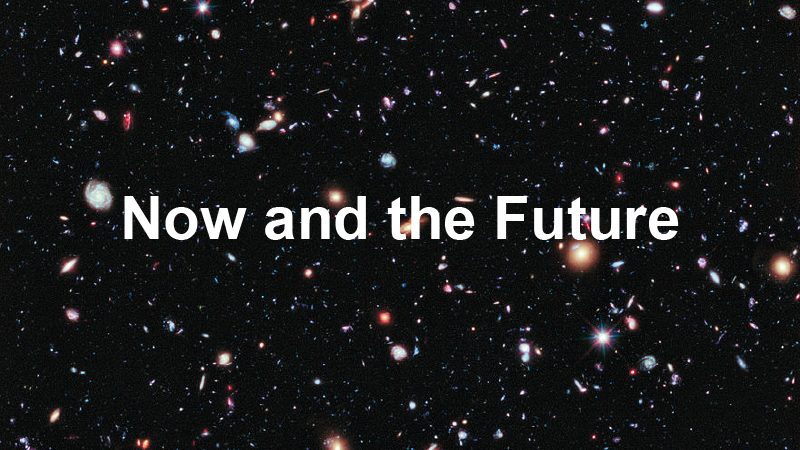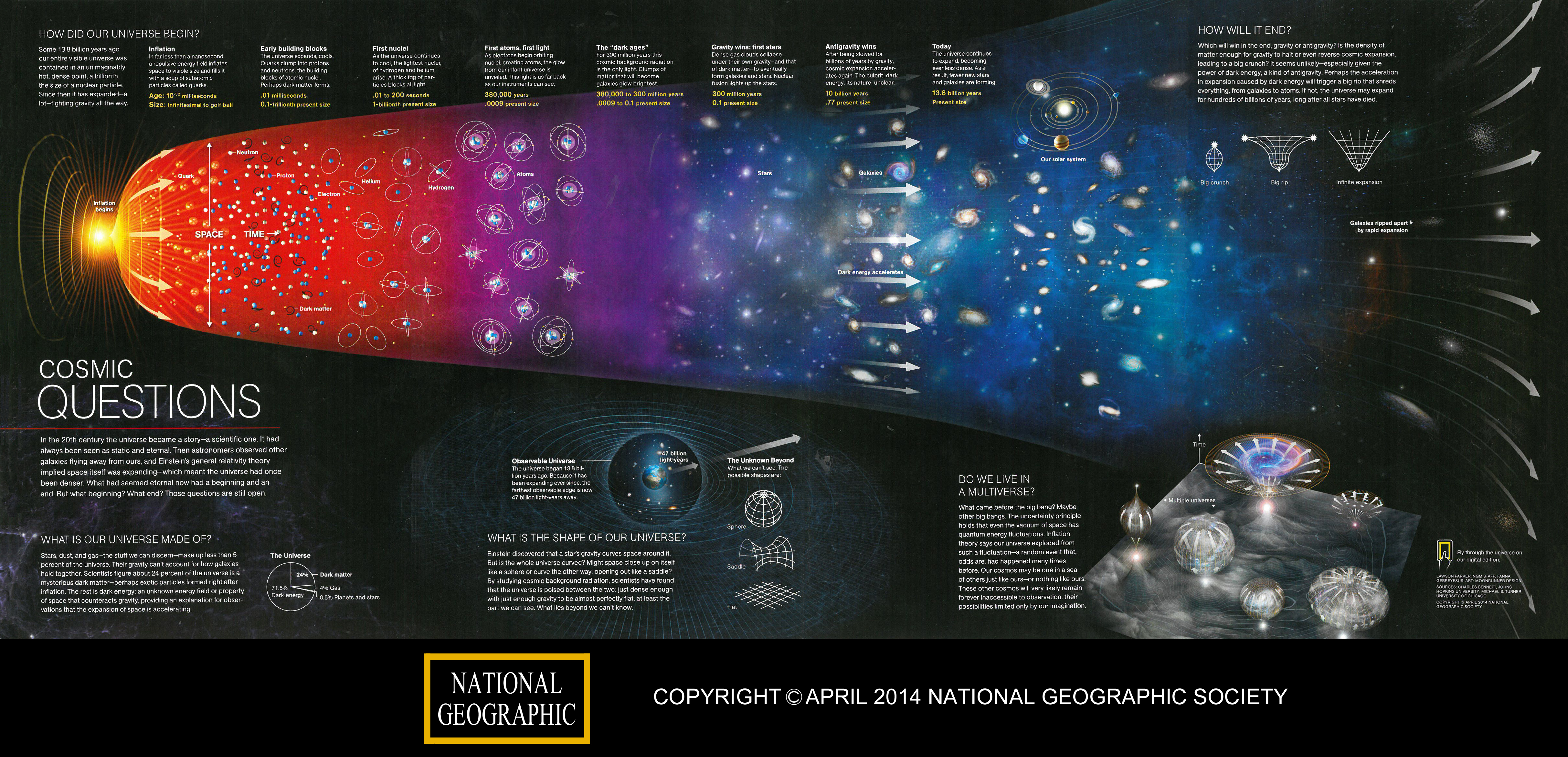Now and the Future
Episode #10 of the course A short history of the universe
When we look at the universe through telescopes, it seems eternal and changeless. But according to our understanding today, it was different in the past and will be different in the far future. In fact, scientists now believe that we live in a very special time in the life of the universe—a window of time when life can easily evolve.
Right now the universe has great conditions for life, because there were a few generations of stars before our sun that created all of the elements heavier than helium (such as the carbon, oxygen, and nitrogen our bodies are made of). During earlier times, there might not have been enough of these elements around to create life. For the same reason, the earlier universe did not have enough metal in it for creatures like us to develop the kind of technologies we have today.
And on the other hand, there will not be many more generations of stars. In about five billion years, our sun will die after burning up most of its hydrogen, and eventually all of the stars will do the same. Someday, as the universe continues to expand, there will no longer be enough hydrogen left in thick enough clouds for any stars to light up, and the universe will go dark. Already today, astronomers can see many “dead” galaxies—galaxies in which all of the stars are old and dying and no new ones are being born.
Our time in the universe right now is special in other ways. For example, the universe was not always expanding at an accelerating rate. It was expanding more slowly until around the time that our solar system was formed, which is just a coincidence. Around that time, the universe got big enough that the effect of dark energy, which pushes the expansion of the universe, became greater than the effect of the matter that pulls it together, and the expansion started accelerating. We live in the dark energy-dominated period of the universe’s history.
It is also interesting to note that the future development of human civilization depends on the period of the universe we live in. Billions of years from now, the stars and galaxies will be much farther apart. This means that it will be much more difficult for creatures at that time to learn about how the universe works. They won’t be able to see all the things we can see through our telescopes. And it will be more difficult or even impossible to visit other worlds or make contact with other intelligent life, if it exists. Everything will be too far apart. We seem to have been born during the best period of time in the universe for life and advanced civilization!
In the long run, nobody knows how the universe will end. It may keep expanding and cooling forever until nothing is left. All the matter in the universe will be eaten by black holes or spread apart into the void. And even the black holes will evaporate eventually if Stephen Hawking is correct. Or the expansion may slow down and stop eventually. Or it may slow down so much that gravity can pull everything back together into a “Big Crunch” at the end. We cannot know what will happen until physicists and cosmologists understand a little more about the laws of nature.
Recommended book
“A Brief History of Time” by Stephen Hawking
Share with friends


